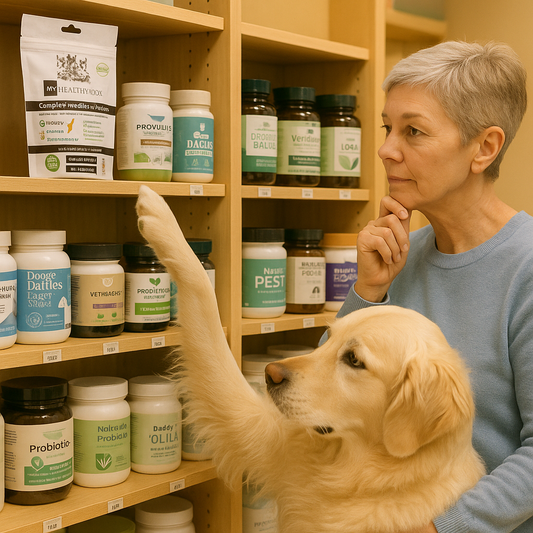The Pekingese, with its distinctive appearance and regal demeanor, is a breed that combines elegance and loyalty. Known for its lion-like mane and affectionate nature, this ancient Chinese breed is both a cherished companion and a symbol of royalty. This article explores the detailed origins, striking appearance, and character traits of the Pekingese, along with essential care tips to ensure these charming dogs lead healthy, fulfilling lives.
Breed Summary
Origin and History
The Pekingese originates from China and has a history that dates back over 2,000 years. Bred as companions for Chinese royalty, these dogs were considered sacred and were often kept by members of the imperial family. The breed's name is derived from the city of Peking, now known as Beijing. Pekingese were first brought to the Western world in the 19th century, gaining recognition and admiration for their unique appearance and royal heritage. Recognized by the American Kennel Club in 1906, the Pekingese remains a beloved breed known for its grace and charm.
Appearance
Pekingese are small, sturdy dogs, standing between 6 to 9 inches tall at the shoulder and weighing between 8 to 14 pounds. They have a compact, well-proportioned build with a long, flowing double coat that can come in various colors, including gold, red, sable, black, and white. Their most distinctive feature is their flat face, large, dark eyes, and a profuse mane of fur around the neck and shoulders, giving them a lion-like appearance. The breed's overall look is one of elegance and dignity, reflecting its royal heritage.
Temperament
Pekingese are known for their intelligent, independent, and affectionate nature. They form strong bonds with their families and are particularly good with children and other pets. Despite their small size, they are confident and can be somewhat aloof with strangers, making them excellent watchdogs. Pekingese are intelligent and eager to please, making them trainable, though they can be stubborn and require consistent, positive reinforcement. Their dignified nature means they thrive on human companionship and can become anxious if left alone for long periods.
Health Outlook
The Pekingese has a relatively robust health profile with a lifespan of 12 to 15 years. However, they are prone to certain health issues, including brachycephalic airway syndrome, patellar luxation, and eye problems such as corneal ulcers. Common skin and hair conditions, such as dry, itchy skin, can also affect Pekingese. Using a premium dog shampoo designed to moisturize and protect sensitive skin can help alleviate these issues. Such shampoos offer benefits like reducing itching, maintaining a healthy coat, and preventing infections.
Nutritional Requirements
A balanced diet is crucial for the Pekingese's overall health and well-being. High-quality dog food rich in protein and low in fillers is ideal. Given their moderate activity level, Pekingese benefit from a diet that supports their energy levels and maintains a healthy weight. Including a complete multivitamin in their diet can ensure they receive all the necessary nutrients, supporting their immune system, joint health, and overall vitality.
Exercise Requirement
Pekingese are moderately active dogs that require regular exercise to stay happy and healthy. Daily walks, combined with playtime and opportunities to engage in mental stimulation, are essential. Due to their brachycephalic nature, it's important to avoid excessive exercise and heat. Engaging in activities like gentle play, obedience work, and interactive toys can also provide mental and physical stimulation.
Pros and Cons of Owning a Pekingese
Pros:
- Intelligent and affectionate, excellent with children and other pets.
- Highly trainable with the right approach.
- Elegant and dignified, making them delightful companions.
Cons:
- Prone to certain health issues, including brachycephalic airway syndrome and eye problems.
- Requires regular grooming to maintain their coat.
- Sensitive and can be anxious if left alone for long periods.
Space Requirements
Pekingese can adapt to various living environments, including apartments, due to their small size. However, they do best in homes where they receive plenty of attention and companionship. Their moderate energy levels and love for indoor activities make them well-suited to both houses and apartments.
Suitability for Elderly
The Pekingese's gentle and affectionate nature makes them suitable companions for elderly owners, provided they can manage the breed's grooming needs. Their moderate exercise requirements and loyal nature provide great companionship for active seniors.
Suitability for Kids
Pekingese are good with children due to their friendly and protective nature. They are patient and enjoy the company of kids, making them a great addition to a family. Supervision is always recommended to ensure harmonious interactions, especially with younger children.
Cost
The cost of a Pekingese puppy can range from $1,000 to $3,000, depending on the breeder's reputation and the lineage of the pup. Additional costs include food, grooming, healthcare, and training.
What Should the Owner Be Like?
Owners of Pekingese should be gentle, patient, and committed to providing regular grooming and mental stimulation. They should be prepared for regular training sessions and consistent, positive reinforcement to manage the breed's sensitivity and intelligence.
Fun Facts
- The Pekingese was considered a sacred dog in ancient China and was often carried in the sleeves of royalty.
- This breed has a unique rolling gait, which adds to its distinctive and charming appearance.
Conclusion
The Pekingese is a regal and loyal breed that brings joy and companionship to any household. With their friendly nature, intelligence, and charm, they make excellent companions for families and individuals alike. While they come with some challenges, particularly in terms of grooming and sensitivity, the rewards of owning a Pekingese are immense. For those who appreciate a blend of elegance and loyalty, the Pekingese is a perfect match.
Are you familiar with the Pekingese or have this wonderful breed in your family?
Share your stories in the comments!
Share the Article with friends!





